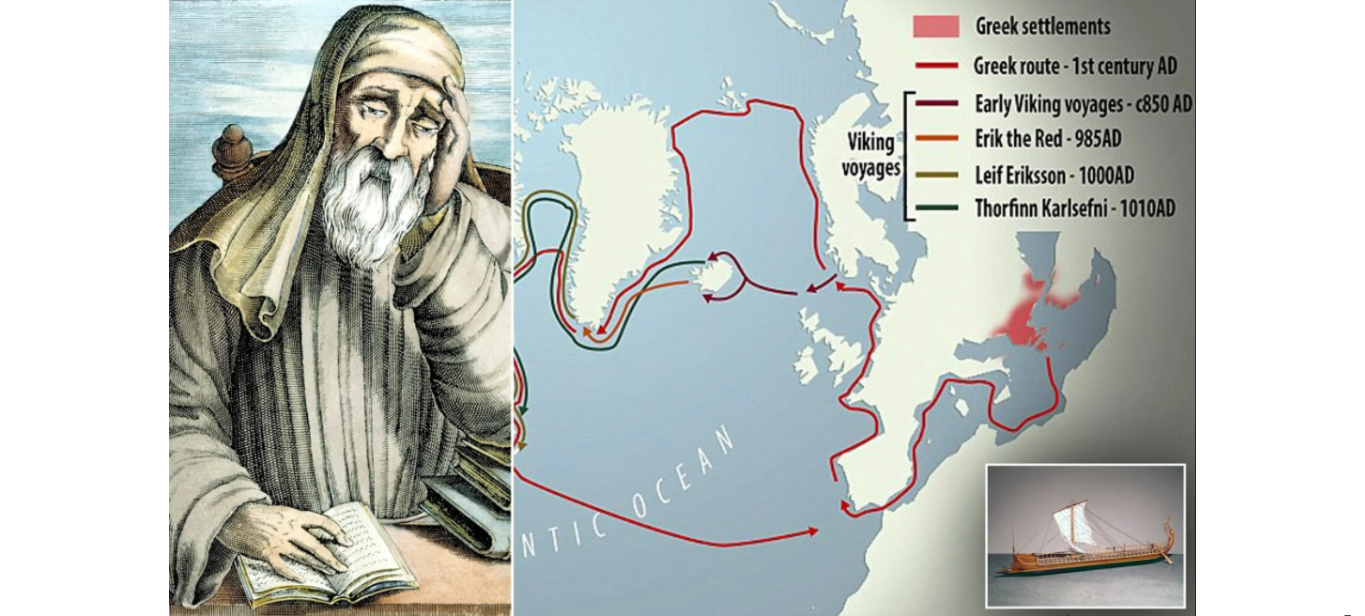The ancient Greeks could have reached Canada in 56 AD – almost a millennium before the Vikings.
This is according to a controversial study that claims Hellenistic Greeks had such detailed knowledge of astronomy that they were able to pinpoint Atlantic currents that would propel them west.
This idea is based on a study of the text ‘De Facie’ by Greek biographer and essayist Plutarch, who lived between 46 and 119 AD.
A character in the texts recounts meeting a Greek stranger who had recently returned from a ‘great continent’ – and scientists say this may have been Canada.
Powered by sails and oars, they may have regularly visited Newfoundland, mined gold and set up colonies that thrived for centuries, the study claims.
However, there is no concrete evidence of these trips and many historians and maritime archaeologists have dismissed the work as ‘unfounded’.
‘Our intention is to prove, with modern science, that it was possible for this trip to be made,’ Ioannis Liritzis, an archaeologist from the University of the Aegean told Hakai Magazine as part of an in-depth feature on his research.
The magical Medieval village & Castle of Monemvasia (photos)
These early settlers may have traveled for the sake of finding new lands or riches, researchers say.
They believe some travelers would return home after a brief stay but for others the trip was one way.
Researchers acknowledge that they do not have evidence that these trips were made but believe they were possible, as suggested by the writings of Plutarch.
Plutarch wrote more than sixty in-depth biographies of famous Romans and Greeks, detailed in his writings of Parallel Lives.
This theory is based on evidence from Plutarch’s work De Facie, also known as On the Face Which Appears in the Orb of the Moon.
In this work, which became familiar to classicists during the Renaissance, characters discuss whether the moon is another Earth, whether it has life, and other philosophical questions.
Read more: Daily Mail
Ask me anything
Explore related questions





